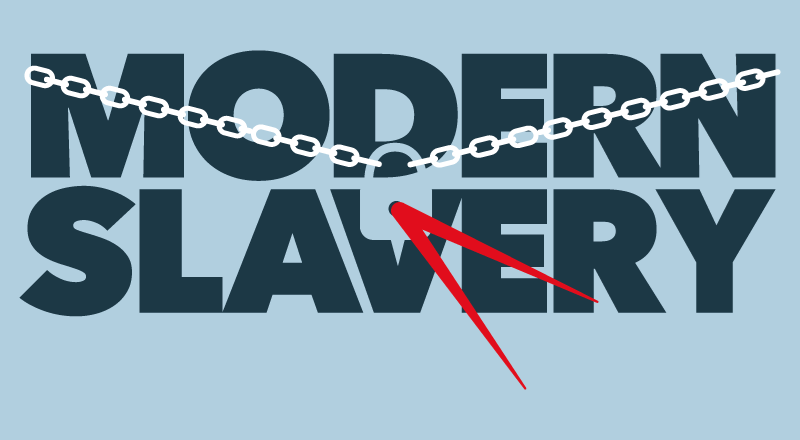Modern slavery generates an estimated $150bn a year, with more than 40m people in slavery globally. Of those, 25 million are in forced labour, while one in four victims of modern slavery are children, according to the International Labour Organisation. For this reason, the UK made it an obligation under Section 54 of the UK Modern Slavery Act of 2015 (MSA) for businesses with a turnover of £36m or more to write an annual statement, explaining the steps they take to address the risk of slavery in their operations and supply chains.
So far, however, the corporate response has been “uneven”, says Dame Sara Thornton, UK’s Independent Anti-Slavery Commissioner, in the report, Modern Slavery Reporting Practices in the UK, from the Financial Reporting Council and Lancaster University.
“Analysing the modern slavery statements and also the annual reports of 100 major companies, the researchers have found a disturbing disconnection between the two reporting activities. This suggests that modern slavery considerations are still not a mainstream concern for many boardrooms,” says Dame Sara, referring to the report’s exploration of how businesses are reporting on modern slavery and measuring the impact of their interventions. By shining a light on how companies are currently performing, the aim is to improve reporting,
Dipak Vashi, Head of Modern Slavery, ICAEW, says: “It’s still a side thought. A lot of big companies will pass [the task] on to a junior associate two days before the deadline. It’ll be quickly put together with some last-minute board member insight and it’s signed off. So no real value is being added.”
The research found that beside one in 10 companies failing to comply, when companies did produce a statement, only a third of them were considered concise and easy to read.
“The majority of statements were fragmented, lacking a clear focus and narrative, or were unduly complicated. For example, longer disclosures did not necessarily mean more informative disclosures; excessively long disclosures often contained boilerplate reporting or were a sign of a poorly structured statement,” the research found.
While FTSE 100 companies provided “significantly more information” in comparison with other companies, the difference between FTSE 250 companies and Small Caps was “much less pronounced”.
Ray Silverstein, partner at Browne Jacobson and head of the firm’s London employment practice, says: “Sadly, non-compliance with the Modern Slavery Act is a direct consequence of the absence of proactive enforcement and the lack of any financial penalties and other sanctions.”
Worryingly, most modern slavery statements were “wholly backward-looking”, with only a minority identifying emerging issues or a long-term strategy.
Despite risk management rising up the boardroom agenda in the wake of the pandemic, and businesses facing significant material and reputational risk of modern slavery being found somewhere in their supply chains, less than a third of them (28%) disclosed an action plan based on the risks identified, the research found. The majority of companies said that they assessed modern slavery risk in their business and supply chain.
The MSA requires companies to post their annual modern slavery statement visibly and accessibly from its website’s homepage. To boost transparency and accessibility for stakeholders, the Home Office launched the government modern slavery statement registry in March 2021. However, posting on the registry remains a voluntary activity for now. It will become mandatory as part of the government’s proposed legislative changes to strengthen the reporting requirements in the future MSA.
So what needs to change? “Reporting needs to be more front and centre in board level minds, and then we will naturally see these deep flaws disappear and become big advantages,” says Vashi. “In our opinion, the framework of reporting doesn’t need any systematic, high-level changes. It just needs to get the attention it deserves.”
Some, however, think more extreme measures should be taken. “The Modern Slavery Act should be overhauled so that there are both financial and legal sanctions against companies and individuals for non-compliance. I would question whether this should be at a corporate level or whether directors and officers should also be included,” says Silverstein.
Accountants will be critical to making reporting more relevant and forward-looking. As Vashi says: “Accountants know everything. Whether you're an accountant in a business, or in practice, you can see the nuts and bolts of the business; you can see absolutely everything that's going in and going out so you can be the first to spot the red flags.”
Those red flags, such as complex business structures, lots of cash-based payments and a level of output that far outweighs the number of staff, are listed in the global slavery index.
Critically, know what to do when you spot a red flag. You shouldn’t, obviously, tip off the perpetrators or suspected victims. There is currently no single source to report to; suspicions or evidence of modern slavery can be reported to the police, the National Crime Agency, or a charity such as Amnesty. The key point is not to ignore the situation. “This is more complex because every situation is different. But the main advice is you can’t stay silent. You can’t just ignore your suspicions,” says Vashi.
Failure to fully comply with the reporting requirements will increase a business’s risks at a time of heightened turmoil in the world. More importantly, companies that do not provide data on modern slavery in a sufficient and robust manner on their statement are likely to face greater scrutiny from investors, governments and multiple other stakeholders. In this globalised, interconnected world, advanced economies can no longer pretend that they aren’t part of the problem of modern slavery. It’s time to act.
• See ICAEW’s dedicated modern slavery hub for more information.
Recent articles
Company reform and economic crime
The Economic Crime Act 2022 became law in March and part two of the bill is incoming. From risks to required changes, we explore key considerations for accountants on the issue.




